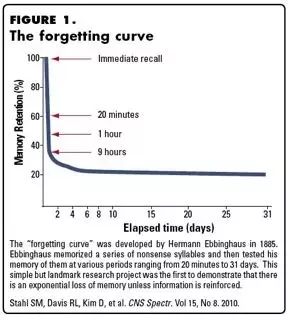Repetition, not novelty, makes for sound investing advice.
Though sometimes it makes me want to rip my face off and scream.
Before ordering the anti-psychotic medication, let me explain.
Unlike the Earth’s climate, the iron laws of investing don’t change.
Saving more than spending, diversifying assets, keeping costs low, knowing the investment time frame, and controlling emotions are pretty much it.
These tenets are the focus of our interactions with clients, outside presentations, videos, and just about every blog post.
It gets to the point where the mere sound of my voice triggers unholy thoughts.
Not towards clients or readers but towards myself.
JUST SHUTUP ALREADY! HOW MANY TIMES CAN YOU SAY THE SAME THING!- Repeats the voice in my head.
The Lord of financial writers, Jason Zweig understands essential repetition better than most.
In his classic post, Saving Investors From Themselves, Jason states:
I was once asked, at a journalism conference, how I defined my job. I said: My job is to write the exact same thing between 50 and 100 times a year in such a way that neither my editors nor my readers will ever think I am repeating myself.
That’s because good advice rarely changes, while markets change constantly. The temptation to pander is almost irresistible. And while people need good advice, what they want is advice that sounds good.
That’s why really smart finance people read tons of books outside their professional subject areas. It’s essential to reinforce these staid principles using constantly different contexts.
History, Science, Psychology, and even the Classics provide excellent opportunities to explain complex finance in a client-friendly manner.
Relating the known to the unknown is an excellent starting point.
Civilians haven’t read hundreds of finance books. They are not interested in the latest podcast on trend following.
Their typical sources are giving out all the wrong messages.
Co-workers, friends, family, and the media are constantly bombarding them with destructive advice in a machine gun-like fashion.
Talking to clients a few times a year isn’t mindless repetition. It’s essential advice that constantly needs refreshing.

Repetition is current events to them.
Understanding this nuance makes all the difference.
Saying the same thing 400 times a year to various individuals and groups is something completely different.
After reading The Tipping Point, Malcolm Gladwell gives an encouraging perspective on the endless loop method of good financial advice
This breakthrough came from an unlikely source – Toddlers.
It turns out, we can learn much from pre-schoolers on how to conduct investing conversations.
The Tipping Point provides this gem.
“If you think about the world of a preschooler, they are surrounded by stuff they don’t understand – things that are novel. So the driving force for a preschooler is not a search for novelty like it is with older kids, it’s a search for understanding and predictability.”
Nickelodeon verified the data by running the same episode of the children’s show, Blue’s Clues for five straight days. Doing this was a risky gambit. To the surprise of many, ratings and engagement increased with each episode. The show became a huge hit.
The kids learned something new each time and consequently became more engaged.
Adults are different. “An adult considers constant repetition boring because it requires reliving the same experience over and over again. “
The catch – For the average investor, investing IS very novel. Most don’t understand how and why markets go up and down. They’re terrified by the random volatility because they can’t comprehend it.
In this case, repeating the same message is comforting rather than sleep-inducing.
Investors Desperately seek predictability. Good advisors can give them the next best thing – repetition of the golden rules.
Should Big Bird conduct annual client reviews? No- Just follow Jason Zweig’s advice and give clients the same message in different ways.
Changing things up is an art, not a science. The benefits will be equally shared.
There are many different ways to convey the same message. It’s up to good advisors to keep themselves and their clients engaged in the process.
This involves repeating the same things. The trick is not saying it the same way twice. Spoiler alert – It’s not easy being Jason Zweig.
Giving clients the advice they need instead of what they want is what it’s all about.
Changing the rules in the middle of the game seldom ends well for most of the players.
Sources: The Tipping Point by Malcolm Gladwell, Saving Investors From Themselves by Jason Zweig.





